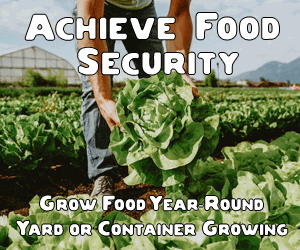Academics say permaculture is a holistic approach to sustainable living that focuses on creating an ecologically balanced system of land use and resource management. One of the core principles of permaculture, permaculture principle number three sharing, which emphasizes the importance of utilizing resources efficiently and responsibly in order to reduce consumption and waste. When shared in a responsible manner, resources can be maximized while creating an environment of mutual support and cooperation. What does this mean?

Environmental and Social Benefits
I have read the benefits of sharing can be both environmental and social. On the environmental side, shared resources help to reduce consumption of the planet’s finite resources and minimize waste by utilizing them more efficiently. On the social side, communal sharing builds stronger bonds between members of the group, develops trust, and provides an opportunity for education and exchange of skills. I think of this along the lines of all the major religions which in some form all seem to encourage us to do unto others as you’d have done unto you and to practice generosity. But what would it look like in practice? I do know some churches are making community gardens a part of their outreach. Excess food is given to foodbanks.
Types of Sharing
Here are various practical applications of sharing that are suggested be employed in order to create a more sustainable future. Examples include: land-based sharing such as community gardening. I love the idea of community gardens and finding ways to bring fresh food closer to communities particularly urban communities who often have no “dirt” in which to grow and no idea where food comes from because they are so separated from the process. If every roof top in say New York was turned into a garden what would that look like? Do New Yorkers want gardens on their roofs? It would allow for collaborative food production as would community farms and buying local. Another idea is resource-based sharing such as tool sharing programs. It’s not bad idea but how would that work? Human beings can be noble but they can also be base. What happens if someone walks off with all the hoes and pitchforks? On the one hand I am concerned some would walk off with the tools, on the other it may be that given the chance people will be more trustworthy than not.
When it comes to land-based sharing, many communities have started to take advantage of the benefits that collaborative food production can offer. Community gardening initiatives allow neighbors to come together and produce their own food in a sustainable manner. This not only reduces environmental impacts by using natural resources more efficiently, but also provides communities with an opportunity for learning and skill sharing. I think this all sounds great, but again, I am not seeing how it can be done large scale. Maybe the trick is to be individually responsible and do what you can in your own sphere. For my part that’s practicing composting and growing and preserving my own food. What would it be for you?
Resource-based sharing systems can also help to reduce environmental impacts by reducing consumption and waste. Tool sharing programs, for example, allow members of the group to access tools that they might not otherwise have access to or be able to afford. OK back to the tool sharing idea, I have to add here, if you can’t afford a shovel chances are you may just choose to sell it instead of dig with it. But then again, anyone really interested in permaculture probably can afford a shovel. I think there must be better way to prevent unnecessary use of resources. One answer might be for rich folks telling the rest of us how to live, to walk the walk and start walking instead of flying around in jets. They can certainly spend their money as they want but not and preach to me about my thermostat and gas stove while flying around in private jets. Similarly, its been suggested barter systems provide an alternative exchange method for goods and services that can reduce the need for money and eliminate waste. I actually like this idea. It can work among people who can agree among themselves on the barter price. Food co-ops in the United Kingdom might be an example of this working.
Shared resources can be a powerful tool in creating a more sustainable future. By utilizing shared resources, communities can reduce their environmental impacts while building stronger social bonds amongst members of the group. Through land-based sharing activities such as community gardening and collaborative food production, as well as resource-based sharing programs such as tool sharing and barter systems of exchange, communities can work together to create a more sustainable future. All of this is true, but not very practical. Can we really feed 6 billion people with community gardens? Don’t get me wrong I think community gardens are a great idea. I’m just trying to envision New Yorkers or any big city agreeing to all have dirt put on their roofs.
In addition to the environmental benefits that shared resources provide, they also offer social and economic advantages. Local sourcing decreases the added cost of transportation and provides fresher, healthier food. Additionally, shared resources can help foster a sense of community through collaborative activities. This is where buying local from the farmer down the street counts for a lot.
Shared Resources
Shared resources are an integral part of creating a more sustainable future. By utilizing these resources in creative ways like community gardens and co-ops can reduce their environmental impacts while fostering social and economic benefits and generating fresh high quality foods. But really, I think we need to tag the garden tools with a trackers.
Ultimately, the principle of sharing really is an essential part of permaculture as with life. With more mindful consumption habits and increased awareness about collaborative food production; resource-based sharing including tool sharing programs and barter systems; and housing initiatives such as tiny house villages may indeed make a permaculture heaven. But don’t untap those tracking tags on the shovels!
Conclusion:
In conclusion, I love permaculture. When I first read about it I thought how neat a garden system that sustains itself, as all it’s part work together. Wouldn’t it be great if the world could learn to live that way. But I disagree on the communal shovels. I’m keeping my shovel. I may loan it to you but the tracker stays on.

